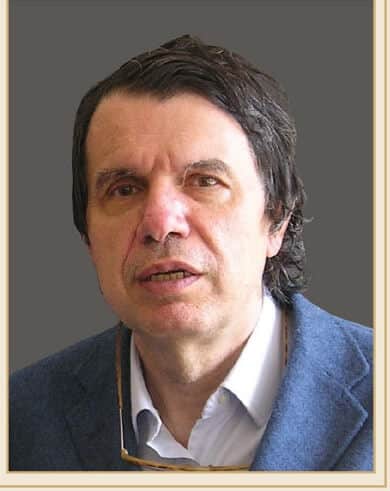The 2021 Wolf Prize in Physics is awarded to Professor Giorgio Frisi "for his groundbreaking discoveries in disordered systems, particle physics and statistical physics."

For the main news about the Wolf Awards for 2021
Giorgio Frisi, professor of theoretical physics at the University of Rome-La Sapienza, whose research focuses on quantum field theory, statistical mechanics and complex systems.
From a young age, Frizi's father encouraged him to pursue and develop in the field of engineering. But Prizi, who from childhood showed great interest and strong ability in mathematics, had other ambitions. Frizi was fascinated by the descriptions he read in popular science and science fiction books and by the adventurous nature of research and saw physics as the field where he could fulfill his intellectual challenge at the highest level. Frizi finished his studies in physics in 1970 in the shortest possible time, under the guidance of Prof. Nicola Cabibo. Frizi's achievements span many fields in modern physics and even in the field of biological models. Frizi is the author of many books and articles and ideas that have opened up new areas of research and thousands of scientists every year rely on the set of ideas that Frizi presented in his studies.

The Wolf Prize in Physics is awarded to Giorgio Frisi for being one of the most creative and influential theoretical physicists of recent decades. His work has had a great influence on a variety of branches of the physical sciences, including particle physics, critical phenomena, disordered systems, as well as optimization theory and mathematical physics. In 1977, together with Alterelli, Frizi discovered the evolution equation that allows one to calculate precisely how quarks and gluons are distributed in the proton and the nucleus (both discovered separately by Hugh L. Dukshitzer). Frisee's work was an essential component in analyzing the fundamental structure of matter at the smallest distance scale possible through high-energy scattering of elementary particles. The results he arrived at were used in the preparation and analysis of experiments carried out at the Large-Hardon Collider (LHC), searches for dark matter and are currently used in planning experiments at the Future Circular Collider.
In another series of initial works he carried out between 1979 and 1984, Frizi introduced the concept of "Replica Symmetry Breaking" and applied it to spin glass models (the Sherrington-Kirkpatrick model) where no simple order parameter exists. His amazing intuition led Frisee to the discovery of the non-ergodic nature of the prostration phase in a spin glass where many pure states exist simultaneously that are not related to each other by symmetry, this in an ultrametric structure that is distinctly non-trivial. Frisee's proposal for the reorganization of matter caused a change in the way of thinking in statistical physics and led to many applications in other disordered systems such as structural glass, neural networks and combinatorial optimization theory.
The most innovative work he did together with Sourlas (Sourlas) in the study of quantum phase transitions opened up the possibility of identifying the actual realization of a symmetry called supersymmetry in condensed matter systems.
2021 Wolfe Awards
- Prof. Leslie Lazerovitz and Meir Lahav Moitzman won the Wolf Prize in Chemistry 2021
- Deepening our knowledge in understanding the RNA molecule allowed us to produce a rapid vaccine for Corona
More of the topic in Hayadan:

One response
Something here makes no sense
Sheldon Cooper has already received a Nobel Prize for this 🙂